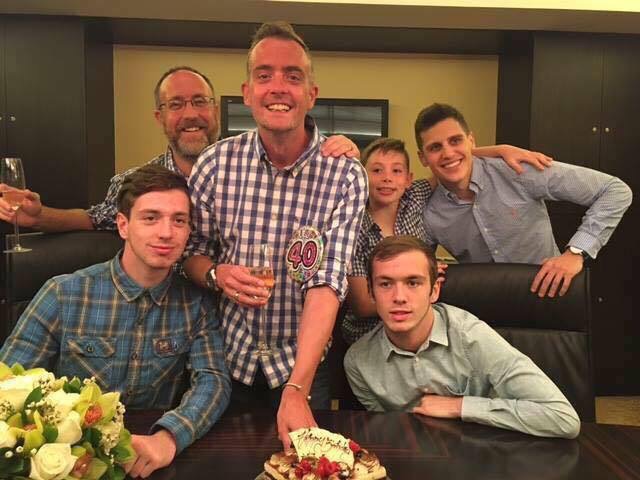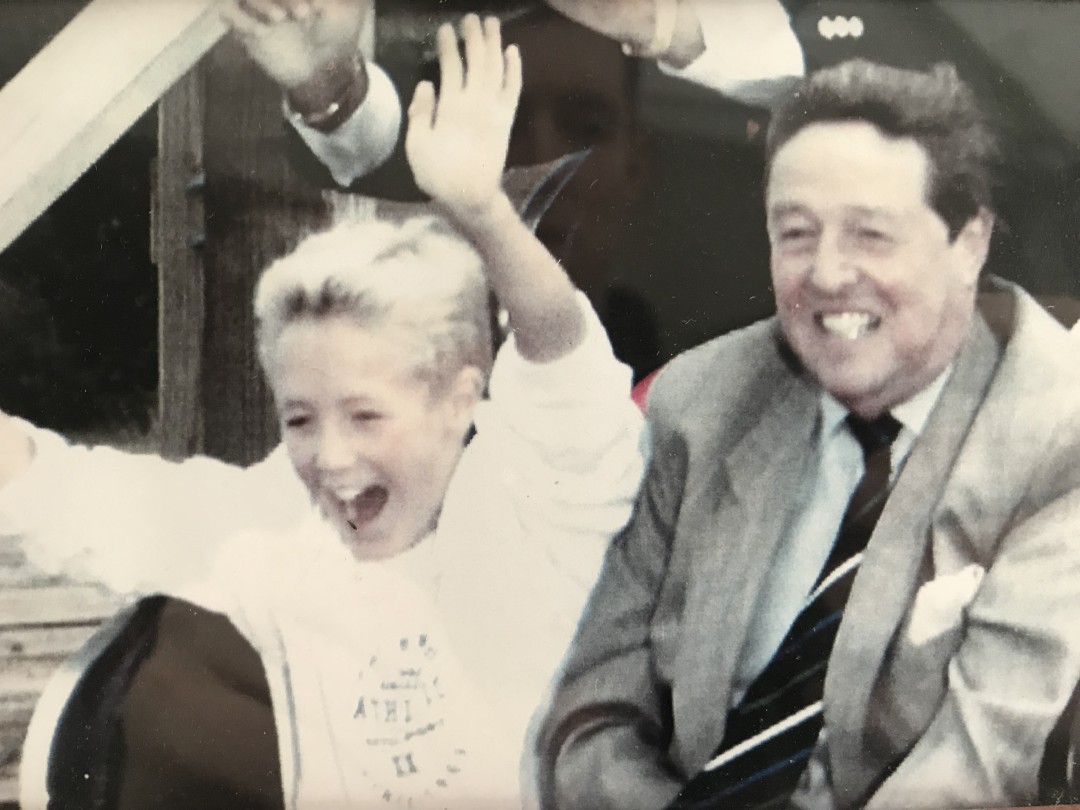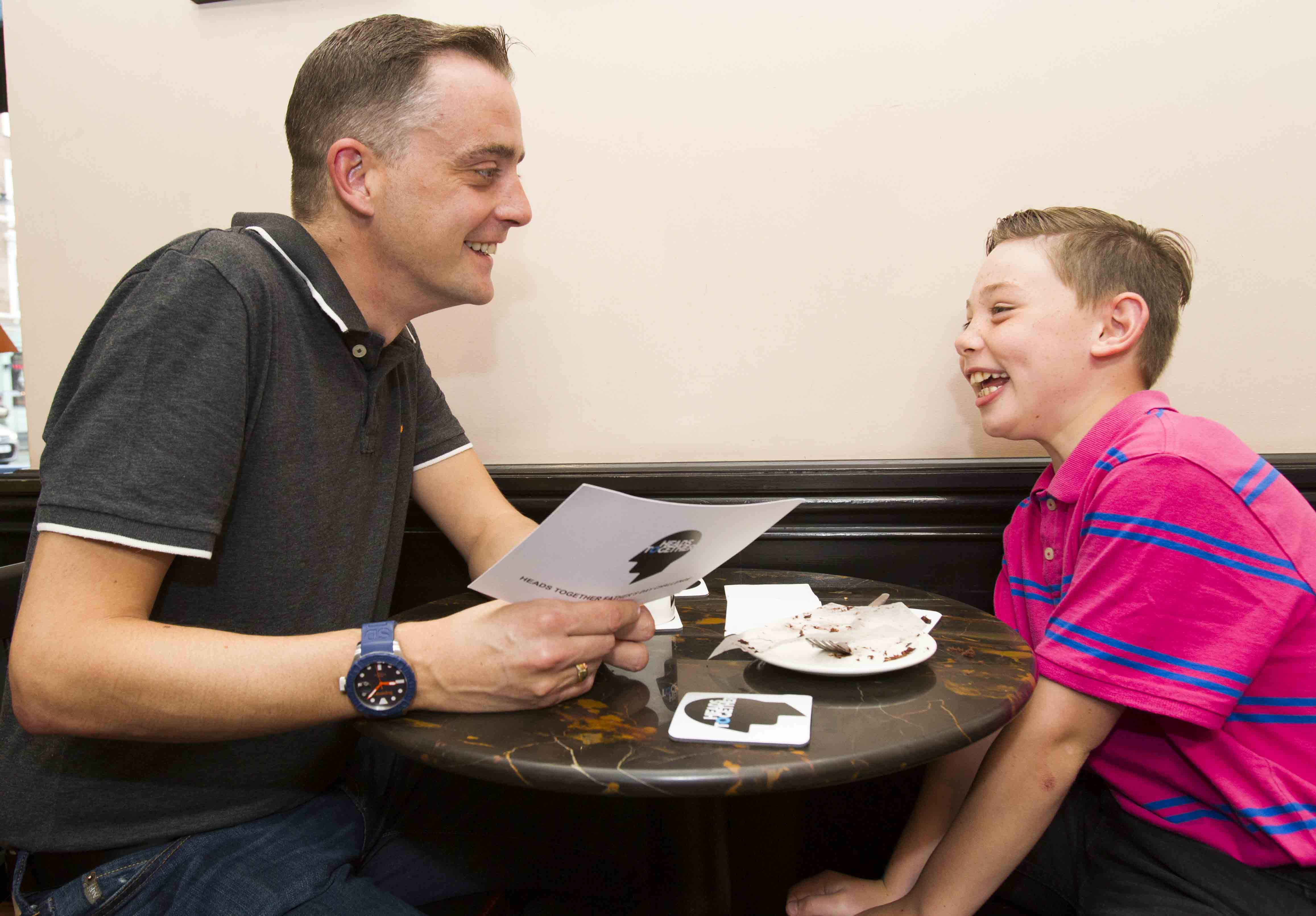
Most people think of New Year’s Eve as a joyful time, of celebrations and new beginnings. For Pip, it represents the worst day of her life. In 2004, it was the day she found out her brother had taken his own life. He was 36. This is her story. Please read with care.
“I accepted a long time ago that it was his choice, but I found it hard to understand why he felt that was his only option. Like dropping a stone into water, it affected so many people.
He left behind two small children, a successful career in the music industry and many friends. There were over 200 people at his funeral. I just wish that he knew how loved he was when he was alive.
His choice changed my life. I’d been married for just three months, I had a stressful job and had to travel a lot. I had to put my life on hold to arrange a funeral and look after my parents, family and his friends. I sat in a police interview room for the first time in my life collecting his belongings and stood up in coroner court.
It was four years later when the physical and mental toll of it finally hit me. I was signed off with stress-related insomnia and severe anxiety. I’d thrown myself into my work to distract me from the pain, anger and resentment I felt. I was working 60 hour weeks and sleeping on average 1.5 hour a night. It was inevitable that I would crack at some point but I never told anyone how bad things were, not even my then husband. My self-preservation had gone into overdrive and I was convinced tragedy was around every corner. I mentally prepared myself for every possibility from nuclear war to my house burning down. Leaving the house was terrifying and exhausting.
Thankfully I found an amazing therapist who gave me the support I desperately needed. I was able to finally deal with how I felt about his death, how it had changed my life and grieve for him, me and my family.
As I said, my self-preservation had gone into overload, so we worked on rationalising some of the more farfetched things I thought could happen.
I had a number of CBT sessions with my therapist. We worked a lot on understanding the thought processes and why I was behaving the way I was. As I said, my self-preservation had gone into overload, so we worked on rationalising some of the more far fetched things I thought could happen.
One technique she showed me was doing a ‘what if’ list. She got me to write down everything that was in my head – all of the thoughts good, bad and weird. Then we looked at the list and rated which of them could actually happen. I soon realised that I was wasting energy worrying about stuff that was never going to happen. She helped me to understand what I could control and showed me how to focus my energies into making the good things in my life the best they could be. She taught me how to control the controllables.
The other thing that she taught me was that ‘it’s OK not to be OK’. I’d been brought up that you didn’t talk about emotional stuff, you just got on with it. Not being OK, doesn’t mean you’re broken or that you will never be OK again. It just means you’re allowed not to always be happy or positive about everything. It means your human. But she taught me enough tools (and I’ve learnt a lot more along the way) to deal with the moments when I’m not OK.
It means that when major change happens, I’m so much better at dealing with it. Like when I was made redundant, my marriage broke down or I lost a really close friend. These events didn’t floor me because I knew how to deal with my emotions in a healthy and positive way.
At the end of the day, I can’t change what happened, I can’t bring him back but I can change how I feel about it and how I react to it.
She asked me to write a letter to my brother, telling him how I felt and how angry I was with him. I found that very cathartic and actually writing my article was cathartic too. I’d never written it down before and I didn’t overanalyse it, I just wrote.
The other thing she helped me to see was that I had no outlet for my stress. As a result I reconnected with an old hobby – horse riding. I bought a new horse and I’ve never looked back. You can’t be stressed around horses so the minute I arrive at the yard, I let everything go. Everyone needs an outlet for their stress. Exercise is a brilliant one.
Suicide is still a subject that few people feel comfortable to discuss. I lost friends as a result as they didn’t know how to deal with it. It seems to polarize people and I found people’s reaction hard at times. I was accused of being blasé about it. I’m not, I just found a coping mechanism. At the end of the day, I can’t change what happened, I can’t bring him back but I can change how I feel about it and how I react to it.
And if by sharing my story, it helps one person, then it’s worth it. This world can be a lonely place sometimes. I wish my brother had realised that there was always someone he could have talked to. If you are struggling with anything, please find someone to talk to. No one should feel that suicide is their only choice”.
One technique she showed me was doing a ‘what if’ list. She got me to write down everything that was in my head – all of the thoughts good, bad and weird.
For more information on male suicide see our partner CALM’s website, they campaign to prevent male suicide.
If you are struggling with the loss of a loved one Mind have an extensive A-Z of mental health information. If you need some support you can talk it through with the Mind Infoline who will be able to see what support options are available in your area.



